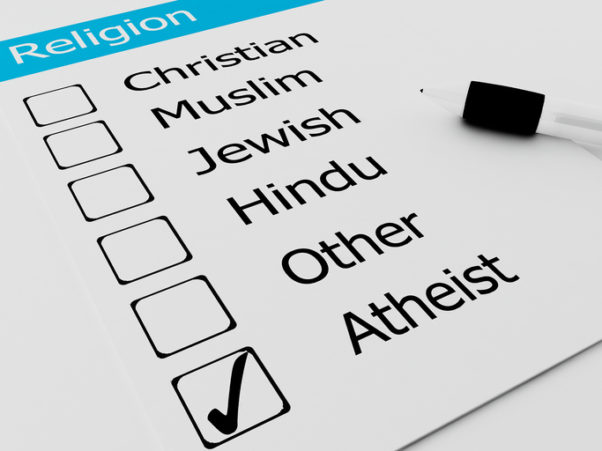In a recent blog, the head of Atheist Ireland, Michael Nugent writes: “I believe we should treat every individual person with the same respect and dignity and love.” Well, yes, and an atheist is perfectly entitled to believe this if they want, just as I am perfectly entitled to believe in God, but both beliefs need to be justified and can’t simply be plucked from thin air and asserted. So, how does an atheist justify such a belief? Short answer: they can’t.
Twitter, as frustrating and time-wasting as it can be, does serve some useful functions, and one is the opportunity to argue back and forth with people who have a different point of view than your own, assuming they don’t simply descend to common abuse.
Anyway, in response to Michael’s blog, I tweeted: “You write: ‘I believe we should treat every individual person with the same respect and dignity and love’. Agreed. But why should an atheist believe this when we are merely chance products of evolution?”
Many of the answers I received fell into two categories. One set completely missed the point and suggested I was saying atheists can’t be good people, which is obviously not true. There are good atheists and bad atheists, just as there as good and bad Christians.
The second type of response was more common, and here is a typical example: [We should treat people with dignity] “because we are a social species and our ancestors evolved to survive through cooperation.”
But this doesn’t answer the question at all. It simply says that we should treat each other well because it has survival value, which is to say, it is useful behaviour. In other words, the argument is a variety of utilitarianism.
In fact, out in the state of nature animals often cooperate to kill other animals, think of a pack of lions for instance. Humans have frequently done the same thing. So, cooperating for the purpose of killing obviously has huge utility value. Alfred Lord Tennyson’s famous saying “nature, red in tooth and claw” is famous for a reason.
If cooperation and killing (and cooperation for killing) all have utility, then how can we call one of these behaviours moral, and the other immoral? Or rather, how can an atheist do so?
A Christian can say we should treat each other with dignity and respect because we are all made in the image and likeness of God. This means we are all morally equal.
On the other hand, an atheist believes we are purely the products of nature and evolution, so to return to the original question, how can they justify the statement “we should treat every individual person with the same respect and dignity and love”?
To repeat, nature and evolution provide no answer. Utilitarianism ultimately provides no answer, because opposite kinds of behaviour have utility. Obviously, an atheist cannot refer back to a creator.
But this doesn’t stop atheists constantly asserting that we all have equal dignity. This is a naïve form of atheism, a bluff, which the atheist Frederick Nietzsche called out way back. He knew you cannot kill off God and hang on to the belief that we are all morally equal. The two go hand-in-hand.
Even the Guardian newspaper recognises this. As it said in an editorial a few years ago: “The idea that people have some rights just because they are human, and entirely irrespective of merit, certainly isn’t derived from observation of the world. It arose out of Christianity, no matter how much Christians have in practice resisted it.”
Sooner or later, your average atheist will have to recognise that Nietzsche was right: you cannot ditch belief in God without also ditching the belief that we all possess inherent rights and dignity.

















